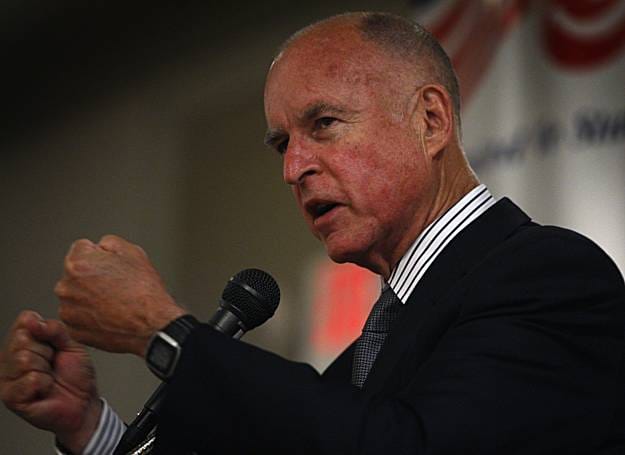Jerry Brown pulling away in California gubernatorial race


While the California Senate race remains a toss-up despite some pro-Boxer winds yesterday, Jerry Brown has become the clear favorite in the gubernatorial contest, in spite of the massive financial advantage enjoyed by his rival, Meg Whitman.
Yet, this financial advantage was always a mirage for a deeper problem with the Whitman campaign – that it relied almost entirely on the coffers of its supremely wealthy candidate to win, rather than using fundraising as a tool to reach out and gain support from Californians. Whitman’s campaign is the story of a generally aloof candidate using her massive fortune to remain aloof despite running in a state that views aloof, rich businesspeople as deeply suspicious. Whitman’s campaign failings have shown her to have a relatively tin ear for California’s electorate, given that her run toward the center has been easy for observers to pass off as "Schwarzeneggerian gutlessness" rather than principled moderation. Also, her mistakes with respect to illegal immigration and pay-to-play politics have made her easy to cast as someone who believes in one set of rules for her and one set of rules for others.
Brown, meanwhile, after a campaign riddled with hiccups last month, has kicked into full discipline, running a campaign which has suffered only one major gaffe (one which Brown was surprisingly adept at neutralizing). Brown’s ability to feel the pulse of California’s electorate is understandable, having been a career politician in the Golden state for years on end, thus making his advantage in political savvy and capital comparable to Whitman’s raw advantage in cash.
In some sense, this election has been unfair to both parties, given that Whitman could easily drown Brown out on the airwaves, and Brown could easily outfox Whitman on the campaign trail. The difference is that because of the aforementioned tin ear, Whitman didn’t know what to say to drown Brown out, whereas Brown knew just what to say in those few moments where he could get a word in edgewise.
The chances for a Whitman resurgence are probably small – unless Whitman is hiding a massive October surprise in her pocket until the last second, almost anything would be too little, too late. Moreover, it’s hard to see how even the biggest Republican wave could make up for her double digit deficit against Brown in the polls. Carly Fiorina has shown some signs of momentum recently, but not enough to make her coat tails a viable support structure for Whitman to cling onto.
In short, the eBay CEO is probably going to leave this election with her wallet considerably lighter and nothing to show for it. It’s too bad, because her level of business savvy and political courage could have made her a very successful governor; however, the difficulty with running a campaign oriented around pay-to-play is that sometimes when you play, you lose.


